Il fotografo francese Harold de Puymorin ci ha raccontato la sua vita ad Hong Kong
- Rodolfo Felici

- 13 gen 2019
- Tempo di lettura: 8 min
So che sei originario di Toulouse, in Francia. Cosa ti ha spinto a trasferirti ad Hong Kong? E’ da molto che vivi lì? Lavoravi già come fotografo quando hai deciso di trasferirti?
Il mio lavoro precedente mi ha offerto una posizione in Asia, con base ad Hong Kong.
Dopo sei anni di lavoro nella industria delle telecomunicazioni, ho deciso di sviluppare una mia compagnia, incentrata sulla fotografia.
Immagino che stessi cercando nuove sfide e che volessi provare qualcosa di solamente mio. La scelta cadde sulla fotografia, ma non fu una sorpresa, perché ero veramente appassionato al tempo.
Essere un europeo ti ha aiutato in qualche modo nella professione? Ti consente di osservare le cose con uno sguardo differente?
Hong Kong è una città internazionale ma è veramente difficile sopravvivere qui. Il costo della vita è pazzesco. La cosa buona è che puoi dare il massimo e ottenere dei risultati passo dopo passo.
Ci sono voluti circa tre anni per far decollare il mio businness, e ancora devo lottare a volte! Suppongo che la cosa che mi è stata di maggiore aiuto sia il mio senso del marketing e delle vendite, imparato nel mio lavoro precedente.
Non è importante solamente l’aspetto artistico quando diventi un fotografo, devi pensare veramente a te stesso come ad un imprenditore.
Conosco Hong Kong solamente dai i film e dalle storie di cari amici che sono stati li. So che è la città più europea di tutta la Cina, e che è molto differente dal resto del paese. Potresti dirci qual é stata la tua prima impressione una volta arrivato li? Immagino che sia una città caotica, ma ideale per la fotografia urbana.
Certamente Hong Kong è una città iconica, estremamente fotografica. Bella, caotica, piena di contrasti e di colori. E’ un misto di natura e città in una area delimitata, è veramente particolare. A distanza di anni puoi scoprire ancora nuove facce di Hong Kong. Finora devo dire di amarla.
Gli street photographer possono certamente sbizzarrirsi qui, in alcune aree della città puoi ancora ottenere immagini che trasmettono il feeling caratteristico della genuina fotografia di strada.
Il tuo lavoro spazia dal ritratto alla fotografia di architettura, lifestyle, still life ed eventi, ma realizzi anche stampe fine art e street photography. Ti definiresti un fotografo eclettico? C’è una grande richiesta di immagini ad Hong Kong? C’è un grande interesse nella fotografia d’arte?
All’inizio desideravo solamente essere un artista e vivere della mia fotografia d’arte vendendo stampe. Tuttavia, credo che avessi troppa poca esperienza in quel campo e soprattutto non avevo collezionato un corpus di opere sufficientemente maturo, stavo e sto ancora cercando il mio stile personale.
Detto questo, ho deciso di focalizzarmi sulla fotografia commerciale piuttosto e di lasciare i progetti personali al latere, solamente per il mio piacere personale e per passione.
La fotografia commerciale è difficile, estremamente competitiva e ci sono tonnellate di fotografi sul mercato.
Suppongo, come ho detto, che sia una costante battaglia basata sul rinnovo dello stile e dell’offerta, e sulla comprensione del business.
Le nuove strategie del marketing stanno cambiando ogni secondo, questo spinge ad usare nuovi media, nuovi formati, devi lavorare sempre più velocemente ed adattare te stesso alle necessità del cliente ogni volta.
La fotografia d’arte, d’altro canto, sta decollando lentamente, con nuove gallerie che offrono stampe fine art o artisti asiatici.
Stanno anche emergendo nuove gallerie fotografiche a prezzi accessibili (dei franchise internazionali). Il problema è lo spazio, perché gli appartamenti di Hong Kong sono veramente piccolissimi. Solamente i super ricchi possono permettersi un appartamento decente, quindi la decorazione e l’arte non è necessariamente una priorità per la maggior parte delle persone.
Che tipo di attrezzatura utilizzi? So che ami la fotografia tradizionale quanto quella digitale. Pensi che gli strumenti e la tecnologia utilizzata influenzino il messaggio o il modo di lavorare?
Ultimamente ho cominciato a scattare in 35mm con una Canon AE1 che ho acquistato in Giappone durante il mio ultimo viaggio.
Riconosco che è stato come una rinascita per me. Ho completamente cambiato il mio modo di scattare per me stesso. Concedersi del tempo e non essere costretto a uno stile specifico. Scatto semplicemente per ciò che sento.
Per lo più sviluppo i rulli da solo ed ho attrezzato una camera oscura con ingranditori per la stampa. Credo che la chiave di tutto sia nel rallentare, e la pellicola mi ha aiutato molto in tal senso.
Per i lavori commerciali utilizzo principalmente fotocamere digitali Canon ed obiettivi a lunghezza focale fissa.
Per la post produzione utilizzo il classico pacchetto Photoshop, Lightroom e Capture1.
Scatto anche con il mio Iphone, penso che per migliorare come fotografo sia essenziale la sperimentazione e la consapevolezza, la fotocamera non ha importanza, è importante solamente cercare di averne sempre una con sé.
Penso che la tecnologia sia un aiuto per la produttività e per la qualità del lavoro naturalmente. Ora ho smesso di investire molto in attrezzature. Sono giunto alla conclusione che meno hai e più creativo diventerai. L’attrezzatura non è tutto, e per di più devi essere attento al tuo denaro, perché potrebbe essere più proficuo investirlo in campi differenti piuttosto che nell’attrezzatura (marketing, staff, ufficio etc.)
(il mio account Instagram è: @harolddp)
Come è attrezzato il tuo studio? Preferisci scattare all’interno del tuo studio o lavorare in esterno?
La maggior parte del tempo lavoro in location. Ho un piccolo studio dove scatto ritratti e still life. Ho qualche luce ed ogni tipo di fondale. Ma riconosco che quel che preferisco fare è lavorare sul campo.
In che direzione sta andando il mondo della fotografia in Cina? Ci sono scuole di fotografia, o tradizioni di riferimento per le arti visive? Potresti suggerire ai nostri lettori qualche giovane artista cinese da tenere d’occhio?
Non so molto delle scuole di arte o di arte digitale in Cina. Per la fotografia commerciale il fotografo più famoso è Chen Man.
Gli artisti cinesi stanno diventando di tendenza, con un discreto senso della creatività, ce ne sono sicuramente alcuni che vale la pena di seguire per comprendere meglio questa parte del mondo.
Immagino che la fotografia sia un lavoro per te ma che faccia anche parte integrante di un percorso di ricerca personale. Cosa rappresenta la fotografia per te e per la tua vita? Ti ha mai aperto porte inaspettate, o ha cambiato il tuo modo di vedere le cose?
Onestamente è stato difficile, ma sono stato abbastanza fortunato ed oggi posso vivere di fotografia. E’ necessario lavorare duro ogni giorno, ma con il tempo ho costruito una rete di partnership, le persone hanno fiducia nel mio lavoro e non potrei essere più felice.
Il mio obiettivo finale è sentirmi libero di agire come preferisco, questo ha un prezzo naturalmente, specialmente qui ad Hong Kong.

http://www.hdp-arts.com Social:
Instagram commercial account: @Hdpphotography
Instagram personal account: @Harolddp
I know you're from Toulouse, France. What brought you to settle in Hong Kong? Has you been living there for a long time? Were you already practicing as a photographer when you decided to move? My previous job offered me a position in Asia, based in HK. After 6 years working in the telecommunications industry, I decided to setup my own company, doing photography. I guess I was looking for new challenges and wanted to try something on my own. Photography came out as no surprise, since I was really hooked at the time.
Does being a European help you in any way in the profession? Does it make you look at things with a different look? Do your creations taste exotic to your customers?
HK is an international place but it is really hard to survive here. Cost of leaving is insane. Good thing is that is you try hard you can make it happen, step by step. It took me roughly 3 years to make my business take off, and I still struggle somedays ! I guess what helps me the most is my sense of Sales and Marketing I learnt in my previous position. Not only the artistic aspect is important when being a photographer, you really need to think as an entrepreneur.
I know Hong Kong only from the movies and stories of dear friends that have been there. I know it is the most European city in China, and that is very different from the rest of the country. Could you tell us what was your first impression once you got there? I guess it's a chaotic city, but ideal for street photography. For sure HK is an Iconic city, extremely photogenic. Beautiful, chaotic, contrasty, full of colours. It mixes nature and city in a confined area, it's really something. Over the years you still discover new faces of HK. So Far I must say I love it. Street photographers would certainly have a lot of fun here, you can still get that "genuine Street" feeling in some areas of the city.
Your works range from portraits, to architectural photos, lifestyle, still life and events, but also to fine art prints and street photography. Would you define yourself as an eclectic photographer? Is there a huge demand for images in Hong Kong? Is there a great interest in art photography? At first I only wanted to be an artist and live out of my art photography by selling prints. However, I guess I was too less experimented in that field and most certainly wasn't mature enough in terms of body of work, I had and I still am looking for my own style. This said, I decided to focus on commercial photography instead and leave the personal projects aside, only for my own love and pleasure. Commercial photography is tough, extremely competitive and there are tons of photographers in the market. I guess and as I said, it's a constant battle on how to renew your style and offers. How do you understand the business. New Marketing strategies are changing every seconds, this drives new medias to be used, new formats, you need to work faster and adapt yourself to your customer's needs at any time. Art Photography on the other hand is taking off slowly, with new dedicated galleries offering fine art or Asian Artist. We also see the emerging of new affordable photography galleries (international franchise). Problem is space, since HK leavings are really tiny. Only the super rich can afford a decent flat, hence decoration and art doesn't necessary comes as a priority for most people.
What kind of equipment do you use? I know you love classic as well as digital photography. Do you think that the instrument and the technology used influence the message or the way of working?
Lately I've started to shoot 35mm film with a Canon AE1 that I bought in Japan during my last trip there. I reckon this has been a rebirth to me. I've completely changed my approach of taking pictures for myself. Taking the time and not being constraint to any kind of style. I just shoot what I feel. I mostly develop rolls myself and started darkroom with enlargers for prints. I guess slowing down is the key and film has helped me a lot in that sense. I also snap with my Iphone, I found at that being a better photographer is all about experimentations and awareness, No matter the camera, try just to always have one with you! (you can check my IG: @harolddp)
For commercial work I mostly use Canon digital camera and prime lenses. For post production the classic bundle Photoshop, Lightroom and Capture1.
I guess technology helps for productivity and quality of work of course. Now I've stopped investing to much in gear. I've realised that the less you have and the more creative you'll become. It's not about the gear really, plus you need to be careful with your money and it may be worth investing in different fields rather than on gear (marketing, staff. office etc..)
How is your photo studio equipped? Do you prefer to shoot in the studio or work outdoors? Most of the time I work on Location. I do have a small studio where I shoot portrait and still life. I've got a few lights and all types of backdrops and stands. But I reckon being on the field is what I prefer doing.
In what direction is the world of photography in China going? Are there photography schools, or a visual arts tradition to refer to? Could you suggest to our readers some young Chinese artist to keep an eye on?
I don't know much about art schools or digital art school in china. For commercial photography the most famous photographer is Chen Man. Chinese artist are becoming trendy, with good sense of creativity, there are for sure worth following to understand this part of the world better.
I imagine that photography is a work for you but also a path of personal research. What does it represent for you and your life? Has photography ever opened you unexpected doors, or changed the way you see things? Honestly it's been really hard, but I got lucky enough and I today can live out of photography. I need to work hard everyday, but with time I made new connections and partnerships, people are trusting my work and I could not be more happy. My ultimate goal is to feel free of my actions, this has a price of course, especially here in HK.










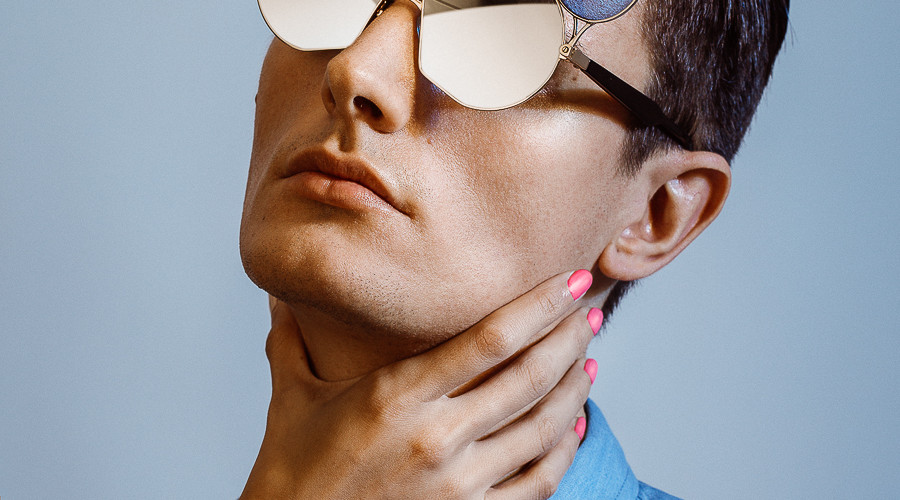



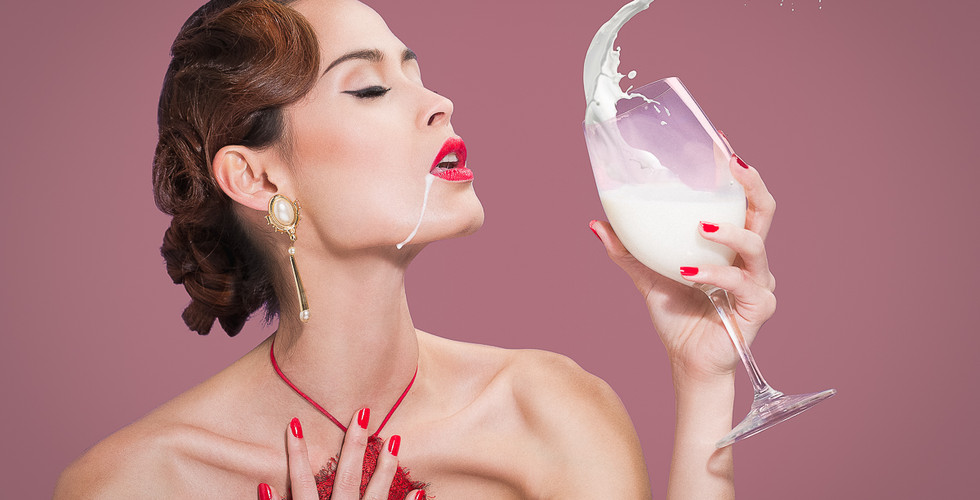

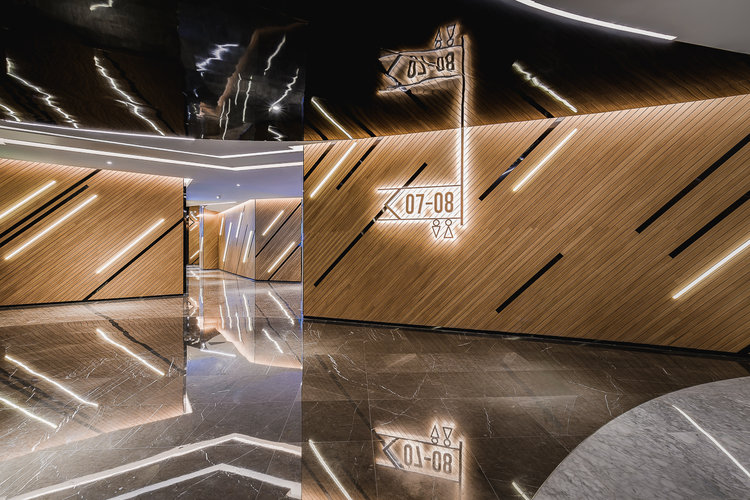


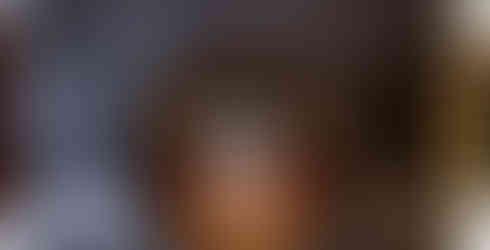














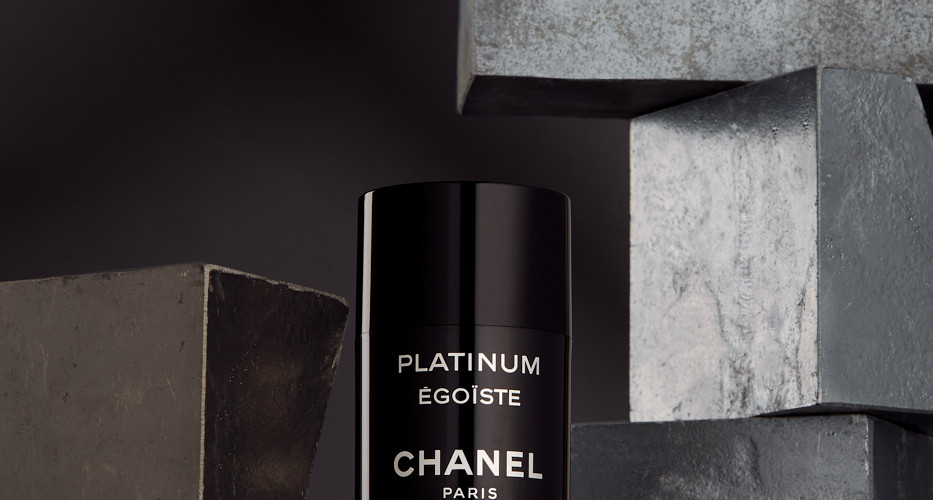















Commenti